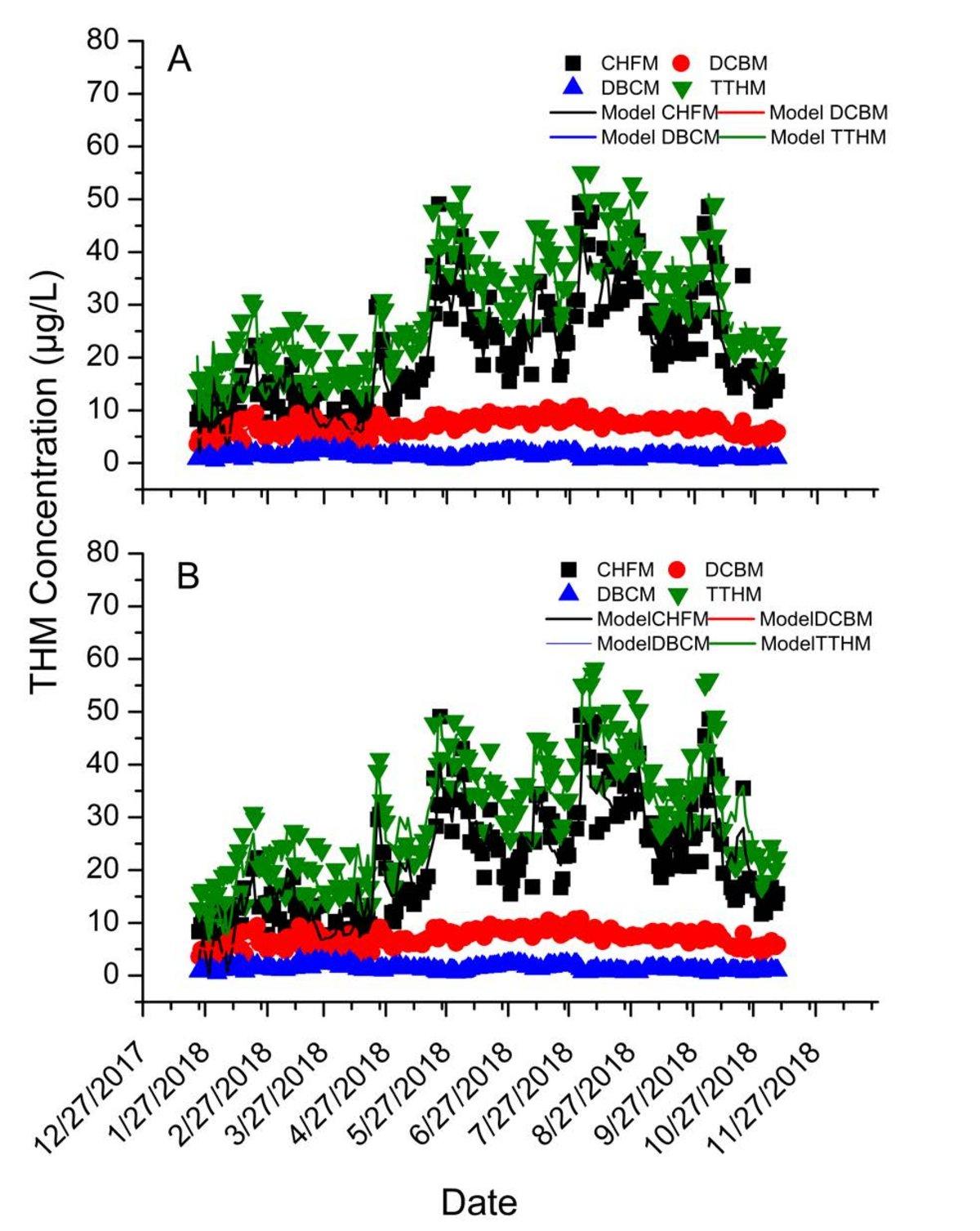

Comparison of the model and actual periodic measurements of THM species in finished water (A) and raw water (B).
This application note describes a rapid, sensitive nondestructive disinfection byproducts (DBP) prediction method using patented simultaneous Absorbance-Transmittance and fluorescence Excitation-Emission Matrix (A-TEEM) spectroscopy. The A-TEEM method provides Natural Organic Matter (NOM) composition and concentration information directly relating to key DBP precursors. In direct reference to a conventional purge and trap gas chromatography (GC) instrument method, over a period of approximately 188 days, we calibrated and validated a Multiple Linear Regression (MLR) model of three Trihalomethanes (THMs) simultaneously including chloroform (CHFM), bromodichloromethane (DCBM) and chlorodibromomethane (DBCM). The best correlation model yielded an adjusted R2 = 0.980 with a slope = 0.956 and close correspondence to each THM species concentration. All data processing can be made in real time using an automated chemometric engine to analyze and report data to an HTML-based dashboard. This A-TEEM method thus serves as an effective instantaneous THM formation and speciation tool for drinking water treatment systems with: 1) rapid data collection time (2-3 minutes per sample), 2) high sensitivity, 3) less expense than conventional chromatography-based analysis, and 4) compatibility with automated sampling.
HORIBA제품의 자세한 정보를 원하시면, 아래의 양식에 내용을 입력을 부탁드립니다.
